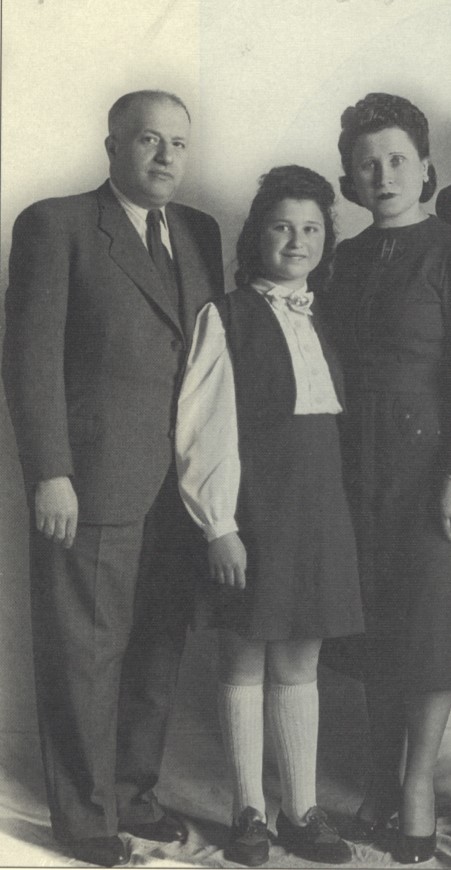|
|
 |

|
|
Ida FENSTERSZAB, born November 18, 1929,
was arrested in the province of Deux-Sevres. Her mother was deported on convoy
11; Ida was deported on convoy 68 of
February 10, 1944. She survived and, as Ida Grynszpan, became an activist
devoted to remembrance. Here is Ida's account of her arrest and deportation in
the great sweep of the region of Poitiers, on January 28, 1944, despite the
opposition of the local population: I was detained at midnight on January
30, 1944, by two French gendarmes in the little village of Jeune Lie, in the
Deux-Sevres. I was fourteen years old. My parents had hidden me with a French
family beginning in June 1940. The night of my arrest, I was hoping to escape
through the door-window of my room, but the woman who was taking care of me
told me that the gendarmes had orders to take her husband if they didn't find
me. Many neighbors, including a member of the local council, tried to convince
the gendarmes not to take me. In vain. So I left with my little bundle and a
few provisions in the black Citroen that was supposed to take me to police
headquarters in Melle. As we drove off, one of the two gendarmes wiped his
forehead and said, "What a terrible job!" But he did it anyway! When we arrived
at the gendarmerie, the captain interrogated me at length about my father. He
knew all the facts: he knew that my father had not been arrested. I said that I
had had no word of him in a long time, which wasn't true – we corresponded
regularly (he was later deported from Drancy, on the last convoy of July 31,
1944). He didn't ask me anything about my mother (she had been arrested on July
16, 1942, in the big roundup of the Velodrome d'Hiver and deported forever ten
days later). After that I spent two days in a center in Niort along with entire
Jewish families who had been arrested. There, my foster mother, who had moved
heaven and earth to get me freed, was able to visit me. She had obtained a
false baptismal certificate from the village priest, and this timid little
peasant woman had had the nerve to present herself at the Kommandantur to
explain that she had adopted me, that I was a convert, and that my arrest was a
mistake. But the head of the Kommandantur just laughed in her face, and asked
her who had arrested me. "Ah, French gendarmes! Well, in that case, there's
nothing I can do!" Then on February 3rd, I was sent to Drancy for a week. On
February 10th, I was among 1,500 men, women, and children who were
loaded
|
|
| |
| |
| |
FRENCH
CHILDREN OF THE HOLOCAUST A memorial
Serge Klarsfeld
 |
Back |
Page 648 |
Forward |
 |
|
 |
|
|
| |
|
Last modified: May 18, 2008
Technical/administrative contact: [email protected]
|
| |

